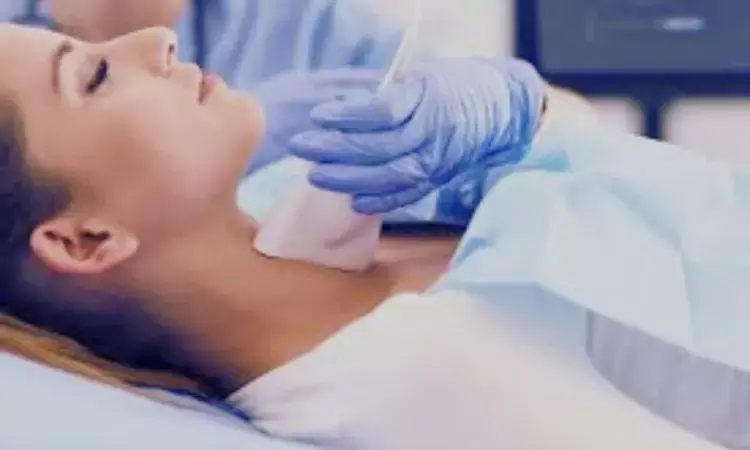- Home
- Medical news & Guidelines
- Anesthesiology
- Cardiology and CTVS
- Critical Care
- Dentistry
- Dermatology
- Diabetes and Endocrinology
- ENT
- Gastroenterology
- Medicine
- Nephrology
- Neurology
- Obstretics-Gynaecology
- Oncology
- Ophthalmology
- Orthopaedics
- Pediatrics-Neonatology
- Psychiatry
- Pulmonology
- Radiology
- Surgery
- Urology
- Laboratory Medicine
- Diet
- Nursing
- Paramedical
- Physiotherapy
- Health news
- Fact Check
- Bone Health Fact Check
- Brain Health Fact Check
- Cancer Related Fact Check
- Child Care Fact Check
- Dental and oral health fact check
- Diabetes and metabolic health fact check
- Diet and Nutrition Fact Check
- Eye and ENT Care Fact Check
- Fitness fact check
- Gut health fact check
- Heart health fact check
- Kidney health fact check
- Medical education fact check
- Men's health fact check
- Respiratory fact check
- Skin and hair care fact check
- Vaccine and Immunization fact check
- Women's health fact check
- AYUSH
- State News
- Andaman and Nicobar Islands
- Andhra Pradesh
- Arunachal Pradesh
- Assam
- Bihar
- Chandigarh
- Chattisgarh
- Dadra and Nagar Haveli
- Daman and Diu
- Delhi
- Goa
- Gujarat
- Haryana
- Himachal Pradesh
- Jammu & Kashmir
- Jharkhand
- Karnataka
- Kerala
- Ladakh
- Lakshadweep
- Madhya Pradesh
- Maharashtra
- Manipur
- Meghalaya
- Mizoram
- Nagaland
- Odisha
- Puducherry
- Punjab
- Rajasthan
- Sikkim
- Tamil Nadu
- Telangana
- Tripura
- Uttar Pradesh
- Uttrakhand
- West Bengal
- Medical Education
- Industry
Radioiodine Ablation Therapy Feasible in Hemodialysis-Dependent ESKD Patients with Low-Risk Thyroid Cancer: Case Series

Australia: In a recently published case series in BMC Nephrology, researchers from the University of Sydney, led by Dr. Raymond Lin, have demonstrated that with tailored protocols and safety precautions, radioiodine (I-131) therapy can be safely administered to patients with end-stage kidney disease (ESKD) on haemodialysis (HD) who are being treated for thyroid cancer.
Radioiodine therapy is a well-established adjuvant treatment for differentiated thyroid cancer (DTC), particularly following thyroidectomy. However, its use in patients with impaired renal function poses a significant challenge. In those with ESKD, the clearance of I-131 is severely reduced, increasing the risk of prolonged radiation exposure and myelotoxicity. Currently, there is no universally accepted protocol for administering radioiodine in patients on dialysis, making treatment planning complex.
To address this, Dr. Lin and colleagues reported on two ESKD patients undergoing chronic haemodialysis who received I-131 therapy for low-risk thyroid cancer. The team adapted its institutional approach by implementing modifications to infrastructure, scheduling, and radiation safety protocols. This included pre-treatment patient training, altered dialysis timing, and close monitoring of serum radioactivity to ensure patient and staff safety.
Dr Kamal Kant Kohli-MBBS, DTCD- a chest specialist with more than 30 years of practice and a flair for writing clinical articles, Dr Kamal Kant Kohli joined Medical Dialogues as a Chief Editor of Medical News. Besides writing articles, as an editor, he proofreads and verifies all the medical content published on Medical Dialogues including those coming from journals, studies,medical conferences,guidelines etc. Email: drkohli@medicaldialogues.in. Contact no. 011-43720751


